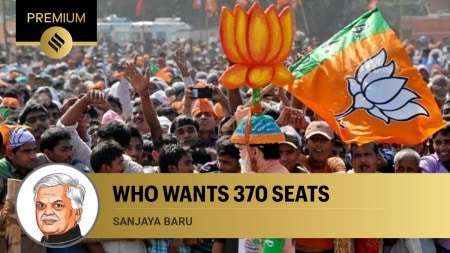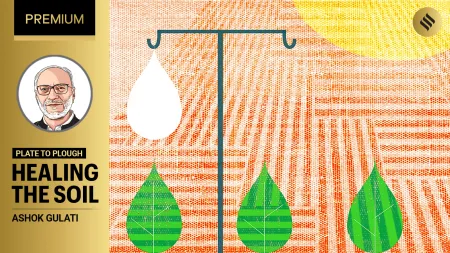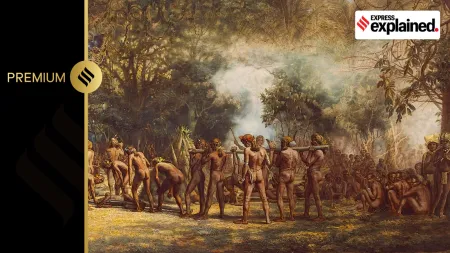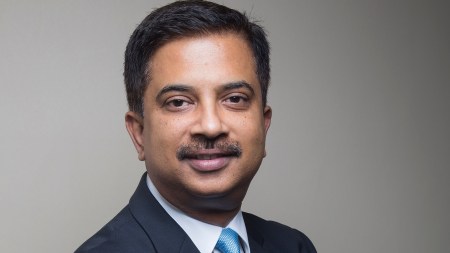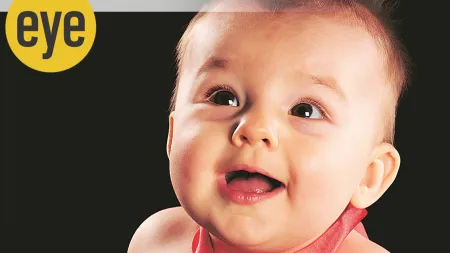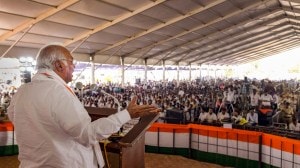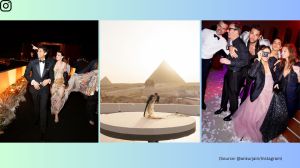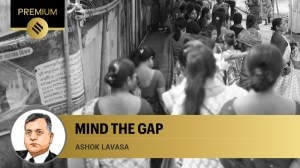- India
- International
This Quote Means: ‘Merry Christmas’
Why is 'Merry Christmas' such a common Christmas greeting? Why does the UK wish a 'Happy Christmas'? Here is a short history of the greeting.
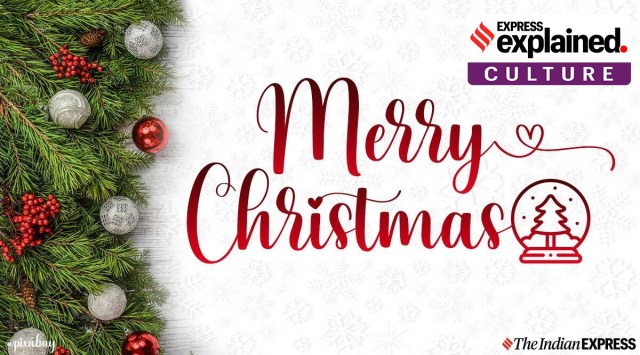 “Merry Christmas” as a saying became popular in the US, and has been so at least since the 19th century. (Source: Pixabay, designed by Gargi Singh)
“Merry Christmas” as a saying became popular in the US, and has been so at least since the 19th century. (Source: Pixabay, designed by Gargi Singh) The most common greeting for Christmas is also one of the most unique greetings for a holiday in the English-speaking world.
Unlike other similar holidays celebrated in the Western world, such as Halloween, Easter and New Year, December 25 is associated with “Merry Christmas” increasingly, but why is that? Does “Happy Christmas”, however odd it may sound, exist as a greeting?
Here are the theories around the different greetings embraced on Christmas.
But why do we say ‘Merry Christmas’?
“Merry Christmas” as a saying became popular in the US, and has been so at least since the 19th century. But the first written record of someone using “Merry Christmas” comes from the UK, in a 1534 letter from a bishop to royal minister Thomas Cromwell, according to a Reader’s Digest article.
The Grammar website Grammarist states that the term’s origins may be from even earlier, spotted in a letter as a wish, that God would send the recipient a “mery Christmas”. It became solidified as a capitalised greeting by English author Charles Dickens in his 1843 novel A Christmas Carol, and also saw a massive rise in its usage.

But despite the origins, people in the UK generally wish “Happy Christmas” to each other. The royal family and Queen Elizabeth II have continued using the phrase “Happy Christmas” in their official broadcasts to subjects. This includes the annual speech broadcast to the country on December 25. It is believed this has contributed to the term’s widespread usage in the country.
Why does the US say ‘Merry Christmas’?
It’s unclear why the greeting changes, but many theories say it might be due to the popularising of ‘Happy’ in the UK by the royals. This could be because of the association of the word merry, which means the same as happy, with being intoxicated or unruly. Therefore, it would not be appropriate for the royals to use.
The US, by contrast, did not seem to worry about such codes and fully embraced the invitation to be merry. But that doesn’t mean the language around Christmas stopped being contentious.
The ‘War on Christmas’ that wasn’t
In the many cultural debates that often flare up in the US over progressive and conservative ideologies, Christmas has featured as well. Around a decade ago, conservative radio shows and TV channels, particularly the right-wing Fox News, began claiming that Christmas was under threat.
There were claims that a more neutral and secular greeting of “Happy Holidays” was being pushed by progressive groups as part of a larger conspiracy to strip Christmas of its meaning. During the campaigning for the 2016 US Presidential elections, the idea was invoked by former President Donald Trump.
According to an article in The New York Times, Trump stood in front of a line of Christmas trees at a rally and said, “When I started 18 months ago, I told my first crowd in Wisconsin that we are going to come back here some day and we are going to say ‘Merry Christmas’ again… “Merry Christmas. So, Merry Christmas everyone. Happy New Year, but Merry Christmas.”
But there is no real evidence for such a ‘war’. The NYT article quotes the Rev. Barry W. Lynn, the executive director of Americans United for Separation of Church and State, as saying that the uproar is based on “stories that only sometimes even contain a grain of truth and often are completely false.”
For instance, a few brands such as Starbucks have sometimes used “Happy Holidays” for their advertisements, to be inclusive of the Jewish holiday of Hanukkah around this time of the year, and other traditions. Trump latched on to this and suggested Starbucks should be boycotted.
By and large, most people prefer “Merry Christmas and Happy Holidays” or simply Merry Christmas in the US. Ultimately, all the greetings convey hope for joy as the year draws to an end.
More Explained
EXPRESS OPINION
Apr 30: Latest News
- 01
- 02
- 03
- 04
- 05


